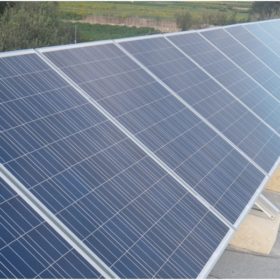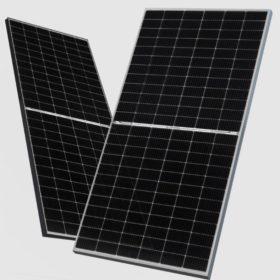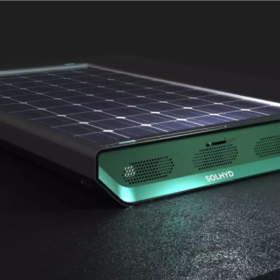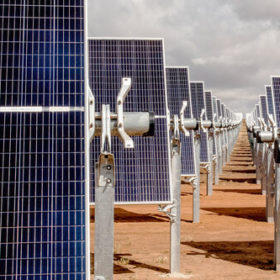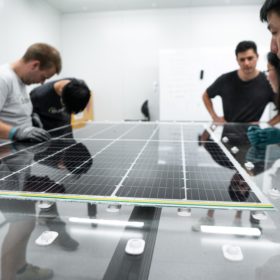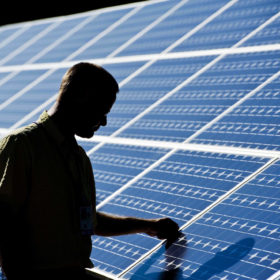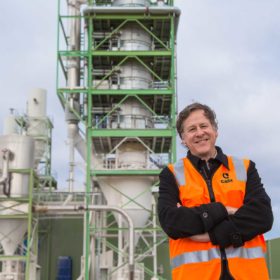Taiwanese consortium develops easily recyclable solar module
The Industrial Technology Research Institute (ITRI) and United Renewable Energy (URE) have developed a solar panel that can be easily dismantled to simplify the recycling process. They claim 96% of the materials in the panel can be recovered, including all of the solar cells and front glass.
New algorithm to identify underperforming strings in PV systems
German researchers have created an algorithm to predict and identify string yield losses or underperforming strings without additional weather data. It could be used to inspect modules, strings, arrays, inverters, and transformers.
JinkoSolar claims 23.86% efficiency for n-type, TOPCon monocrystalline panel
Chinese manufacturer JinkoSolar’s newest PV module has an efficiency rating of 23.86%. It is based on its TOPCon mono cell technology, which achieved a record efficiency of 26.1% in October, as confirmed by TÜV Rheinland.
Floating ‘artificial leaf’ for solar-to-hydrogen production
A team of scientists from the University of Cambridge have developed lightweight floating photocatalyst devices that produce green hydrogen and syngas. The leaf-like photoelectrochemical devices show potential for scalability.
Hydrogen-producing rooftop solar panels nearing commercialisation
KU Leuven researchers have developed rooftop panels that capture both solar power and water from the air. Like traditional PV modules, hydrogen panels are also connected, but via gas tubes instead of electric cables. The researchers are now preparing to bring the tech to the mass market via a spinoff company.
Rooftop PV performance during heatwaves
Chinese researchers have assessed the impact of residential rooftop PV arrays on energy use and surrounding air temperatures during extreme heatwaves. They found that panels with higher conversion efficiencies achieved the best results.
Energy Estate looks to cavern storage for Hunter Hydrogen Network
Developer Energy Estate has signed a deal with Abergeldie Complex Infrastructure, which has designed vertical manmade caverns for hydrogen storage. Energy Estate co-founder Simon Currie says the partnership is about shoring up projects like its proposed 1.6 GW Hunter Hydrogen Network.
New study looks at Sundrive’s 25.54% silver-free heterojunction solar cell
A new scientific paper takes a closer look at the record-breaking efficiency that Australia’s Sundrive announced for a silver-free heterojunction cell in September 2021, as certified by Germany’s Institute for Solar Energy Research.
Most new solar panels retain 80% production after 30 years
A five-year Sandia Labs study on solar module degradation shows that 13 out of 23 tested module types have effective lifetimes exceeding 30 years.
Could Australia still have a pathway to manufacturing green steel?
ARENA has awarded global technology company Calix $947,035 (USD 612,509) to help fund an eleven-month study into the feasibility of deploying the company’s proprietary Zero Emissions Steel Technology (ZESTY) at a demonstration plant – something both Calix and ARENA are touting as a pathway to green steel manufacturing using hydrogen in Australia.

